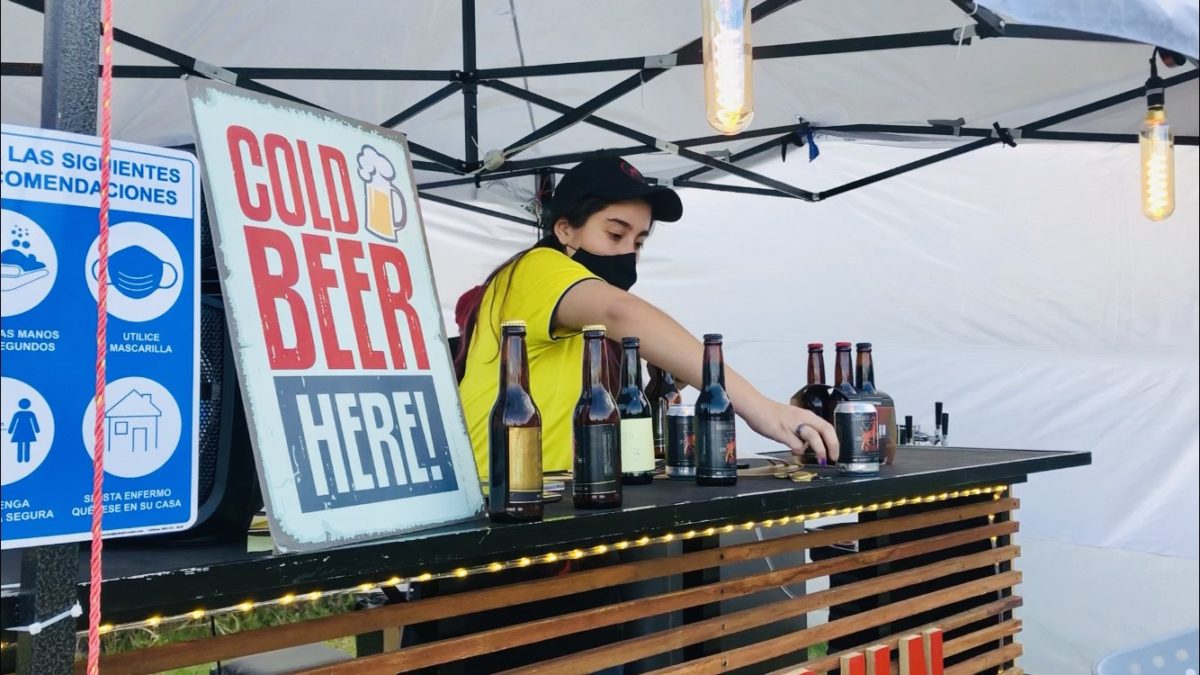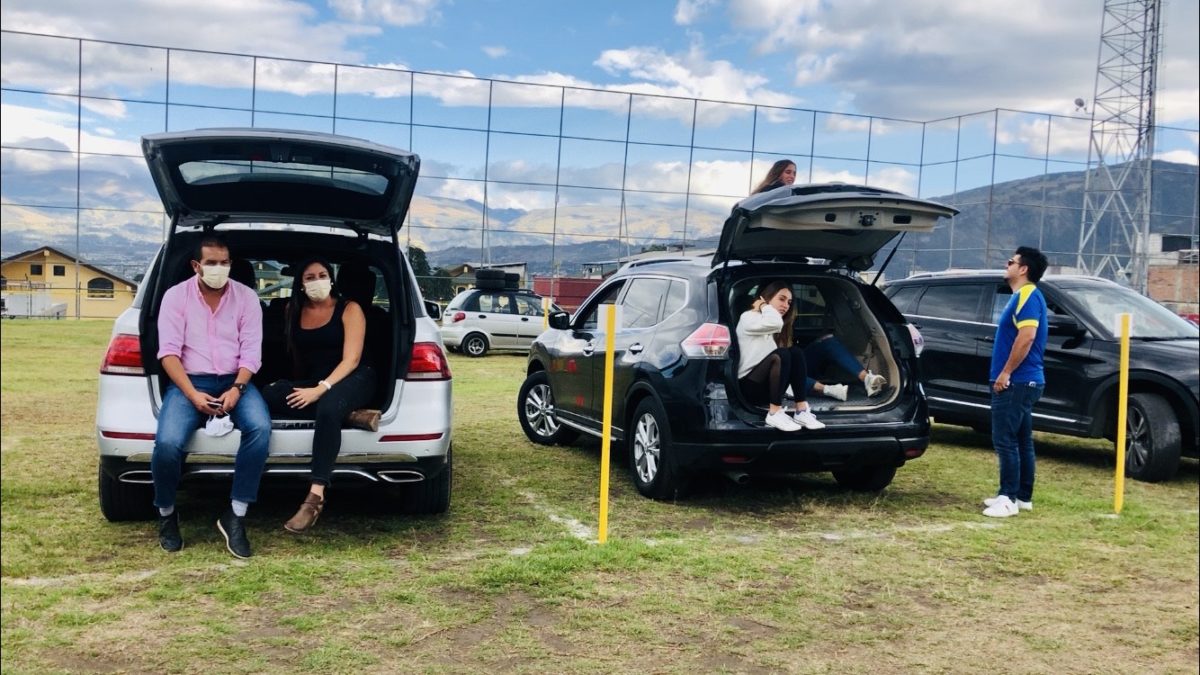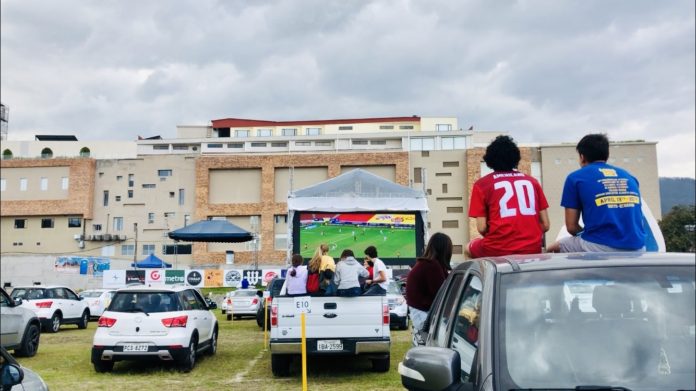On a hot Tuesday evening in Cumbayá, Ecuador, more than 80 people parked their cars at the new drive-in, TopAutocine, in the heart of the valley. A couple in their 30s sit in their small gray KIA wearing yellow and blue national team jerseys.
They tune the car radio to 88.7 as the soccer game starts. Nearby, a group of teenagers climb from the trunk to the top of the car for a better view.
The playoff match between Ecuador and Uruguay’s soccer teams plays on a towering screen. The crowd is quiet until Ecuador takes possession of the ball, precise with coordinated steps between the players.
As they enter the penalty box, which is known as “the line of fire” in Ecuador, close to the goal-keeper, one of the players makes a pass scoring the first goal of the game. The audience honks in celebration.

Drive-ins are one of the ways Ecuadorians are adapting to the pandemic. Here, and in many countries, the drive-in is making a comeback as a safer option than indoor movies and stadium entertainment.
Miguel Perez, a frequent drive-in customer, said he’s enjoyed his experiences and has gone to the drive-in three times so far.
“I’ve enjoyed myself so much that I keep coming every week,” said Perez.
A group of Ecuadorians revived the drive-in experience. They prepared the space over a couple of months before opening on Sept. 20. The drive-in stands on a soccer court, using cones and flags to mark parking spots.
TopAutocine offers more than the big screen. There are two food stalls serving burgers, hot dogs, popcorn and a beer stall offering three different flavours of beer: passion fruit, strawberry and chocolate.
At the entrance, the drive-in staff hands out menus for food and drinks. People aren’t allowed to leave their vehicles. The staff delivers food and drinks to the customers.
Diego Josafath, the administrator of TopAutocine, speaking in Spanish, describes the formula for drive-in success.
“People come here to enjoy themselves,” said Josafath. “We want to sell an experience that they will remember, from a romantic date to a fun day with the kids.”
A woman carries a tray of gum and cotton candy walking through each vehicle section. A family of four sitting on the trunk of their car draws her attention. The father asks for two large cotton candies.


People come across town to watch old classics or movies that bring good memories. The drive-in is open Tuesday to Sunday from 3 p.m. to 11 p.m. People can get their tickets online and it costs between $20 and $30 per car.
Street vendors have also been able to sell their goods at the drive-in, making it easier for them to make money during the pandemic.
“It’s been a great help to keep my family from starving. The managers of the drive-in have let me sell some of my goods here,” said a street vendor with her tray of cotton candy.
The wind blows a gentle breeze, and the sun shines as the game progresses. Ecuador scores the last goal of the playoffs, winning the game 4-2. The crowd calls out the screen and honks.
The sunsets and the breeze get colder. The crowd still hugs, yells and honks to celebrate Ecuador’s victory.
“Our goal is to help each other. That’s why we have a contract with small businesses to sell their products benefiting them, the customers and us,” said Josafath. “These were really tough months for everybody and with this drive-in, we look for people to treasure experiences and help others to get financially stable.”

